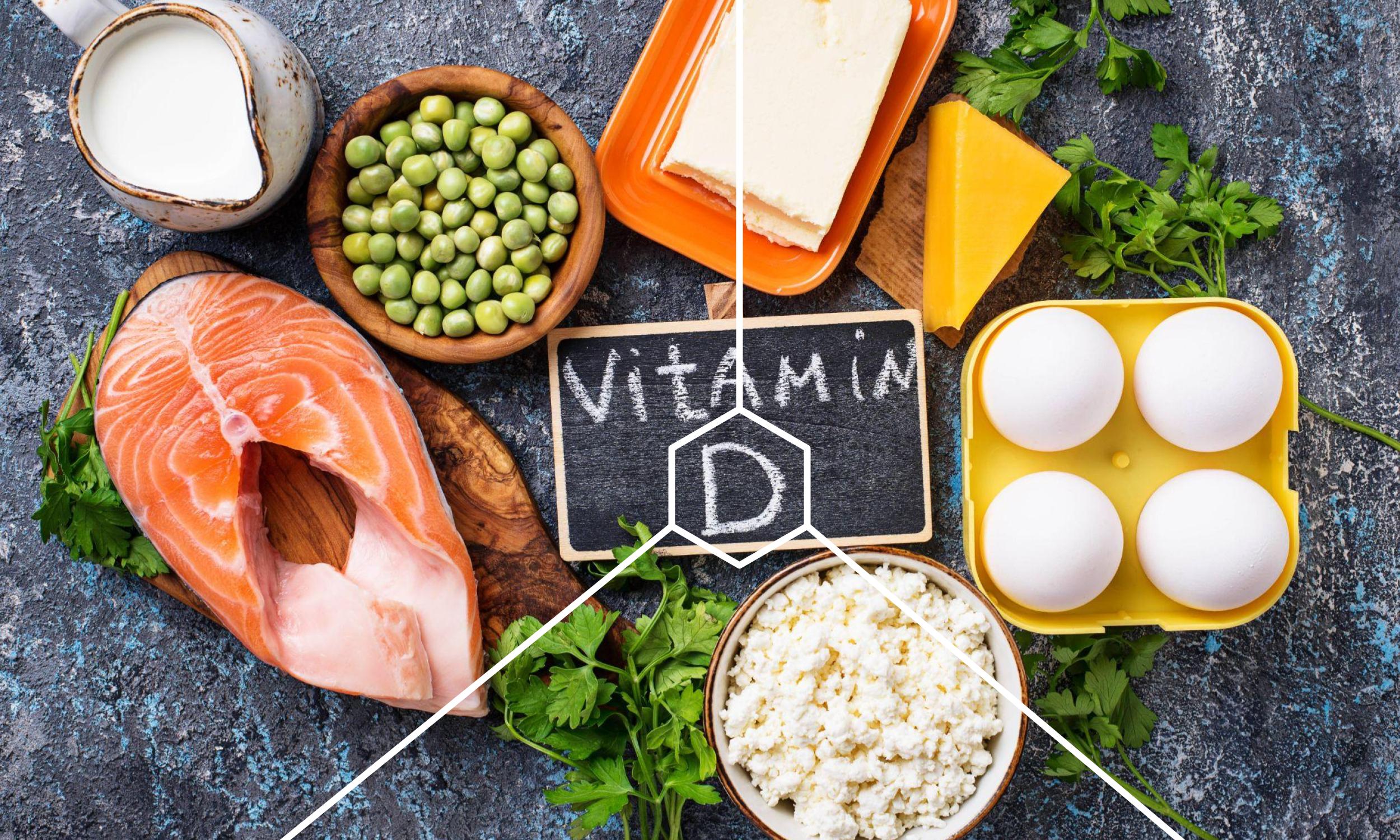
Taking care of your body can be a difficult process. Ensuring you get the right amount of vitamins and nutrients often feels like a full-time job. Even though it’s difficult, it’s essential. Vitamins such as vitamin D can help the body in many ways, including improved immune systems and anti-inflammation. This article will go over vitamin D’s role, foods high in vitamin D, the benefits of vitamin D, and the side effects of vitamin D deficiency.
What Is Vitamin D’s Role in the Body?
There’s no way around it; our bodies can be quite needy. One of the things it needs is vitamin D, but chances are, you already knew that. Growing up, we all heard how important it is to get our vitamins, with vitamin D being one of the most important. But why is that? It’s partially because vitamin D can be difficult to get for some. It’s also because vitamin D provides the following benefits:
- Strong bones - Having strong and healthy bones can help protect you from various conditions.
- Absorbing calcium - Vitamin D helps keep the bones strong and healthy by absorbing calcium.
- Parathyroid glands - These glands work to balance calcium throughout the body. If vitamin D is low, these glands will borrow calcium from the skeleton.
Vitamin D deficiency can lead to numerous health complications. If you have a hard time-consuming vitamin D, speak with your doctor for treatment options.
Does Vitamin D Help Reduce Inflammation?
Beyond keeping your bones healthy and strong, vitamin D can help influence the inflammation system by regulating the production of inflammatory cytokines. Research has linked vitamin D deficiency with an increased risk of acute infections. A healthy supplementation of vitamin D can bolster your body’s response to acute infection.
Research has also shown that low vitamin D levels are often found in those dealing with cardiovascular disease, asthma, inflammatory bowel disease, chronic kidney disease, liver disease, and more. Researchers believe that vitamin D deficiency may play a pleiotropic role in the pathogenesis of diseases.
Does Vitamin D Help Boost Your Natural Immunity?
We have decades worth of research that points towards vitamin D boosting immunity. Research shows that those with low vitamin D levels are more likely to develop respiratory infections than those with sufficient levels. Other studies have shown that there may be an association between lower vitamin D levels and increased rates of infection.
Vitamin D can also help improve your immune system long-term. Your immune system has two different parts, the innate system (responsible for quickly fighting infections) and the adaptive system (which is more of a long-term response). Vitamin D can help improve both systems, so researchers believe vitamin D plays a large role in natural immunity.
What Is the Best Form of Vitamin D to Take?
There are several different ways you can consume vitamin D. This is a good thing because the US National Academy of Medicine considers 600-800 IU of vitamin D to be the recommended daily amount, while the US Endocrine Society recommends 1,500-2,000 IU. This may seem like a lot, but here are some of the ways you can get your recommended daily amount:
- Spend time in the sun
- Eat fatty fish and other seafood
- Eat more mushrooms
- Add more egg yolks to your diet
- Add fortified foods to your diet
- Take vitamin D supplements
- UV lamps
Doctors consider vitamin D an essential nutrient that too many Americans don’t get enough of. The ways mentioned above can help you boost your vitamin D intake.
What Foods Contain Vitamin D?
If you’re looking to increase your vitamin D intake, one of the easiest ways to do it is through your diet. To do this successfully, you must first understand what foods are high in vitamin D. Adding some of these foods to your everyday diet can help you increase the amount of vitamin D in your body:
- Salmon - A 3.5-ounce contains 526 IU of vitamin D, which is 66% of the recommended daily amount.
- Herring and Sardines - Fresh Atlantic herring provides 216 IU per 3.5-ounce serving which is 27% of the recommended daily amount.
- Canned Tuna - Tuna is high in vitamin K, but it also contains 268 IU per serving, which is 34% of the recommended daily amount
- Mushrooms - Wild mushrooms are a great source of vitamin D, with some types of mushrooms packing up to 2,300 IU per serving, which is three times the recommended daily amount.
- Fortified foods - Fortified foods include cow’s milk, soy milk, orange juice, cereal, and oatmeal.
Adding these foods to your diet will do more than increase your vitamin D intake. These foods also provide other nutritional benefits that will help improve your overall health.
What Is Considered a Vitamin D Deficiency?
Throughout the article, we have discussed vitamin D deficiency and how it can negatively impact your overall health and your longevity. But what exactly is considered a vitamin D deficiency? There are several different reasons why you may develop a deficiency, those reasons include:
- You don’t consume enough vitamin D
- You don’t get enough sunlight
- Your kidneys cannot convert vitamin D
- Obesity
- Your digestive tract can’t absorb vitamin D
If you are experiencing fatigue, bone pain, muscle weakness, and frequent mood changes, you may be suffering from vitamin D deficiency. Contact a doctor to discuss treatment options.
Supplements Can Help
Boosting your vitamin D intake can help you improve your overall well-being as well as your immune health. Another way you can boost your immunes system is through a process known as autophagy. This is the body’s way of replacing old and damaged organelles within the cells, allowing your cells to function unimpaired. Autophagy helps reduce inflammation and has positive benefits for your immune system. One of the ways you can induce autophagy is by consuming foods high in spermidine.







